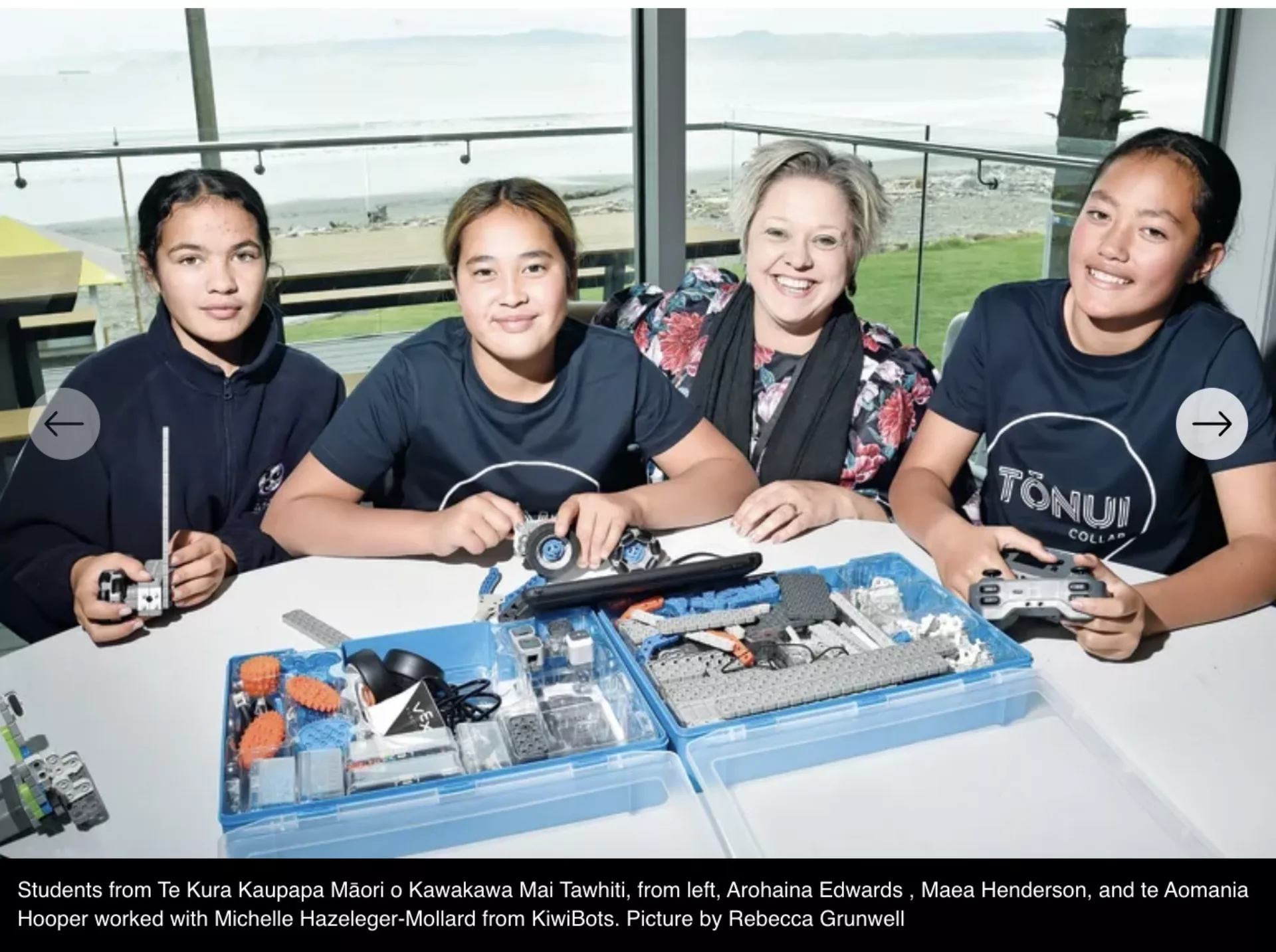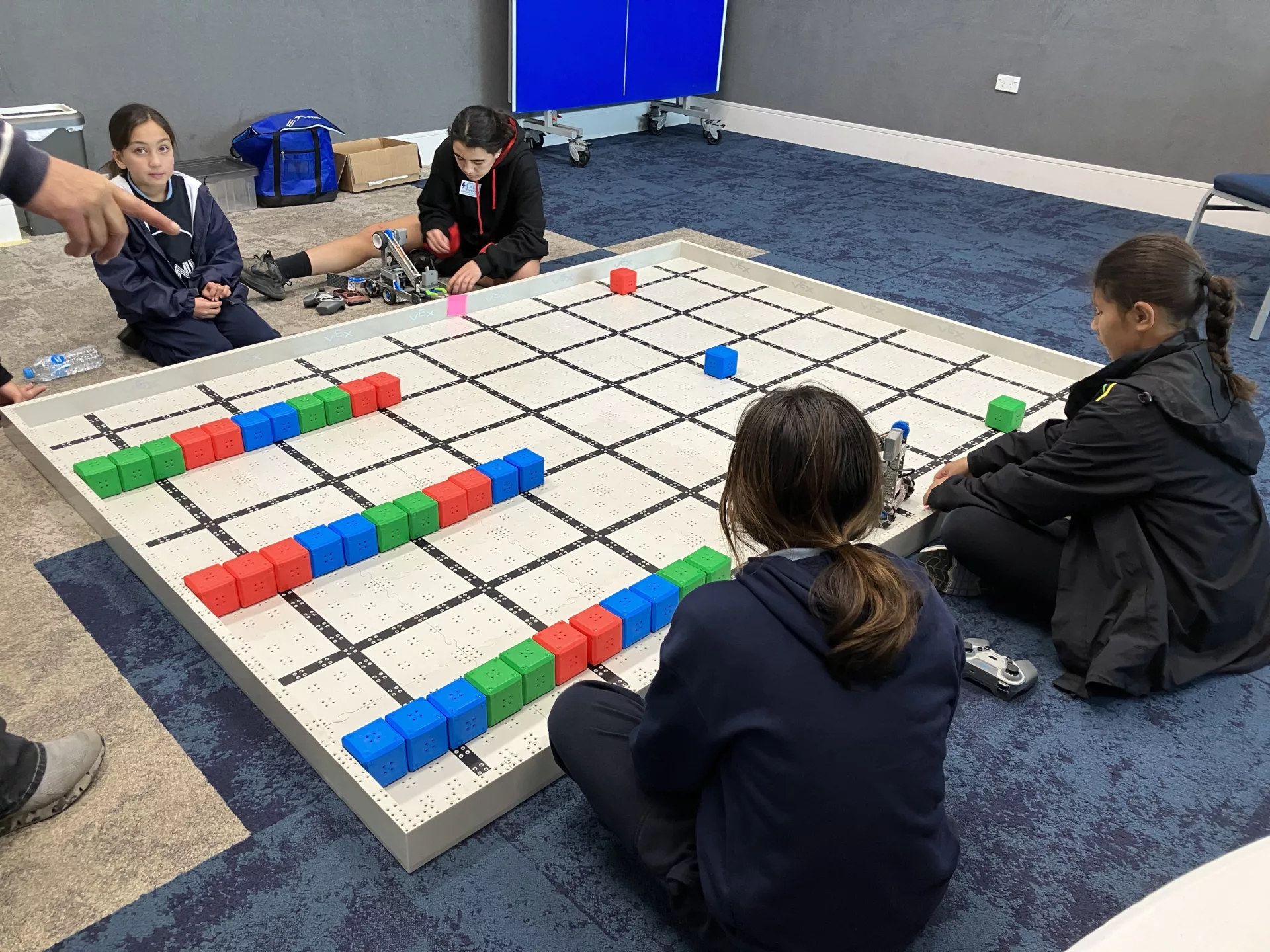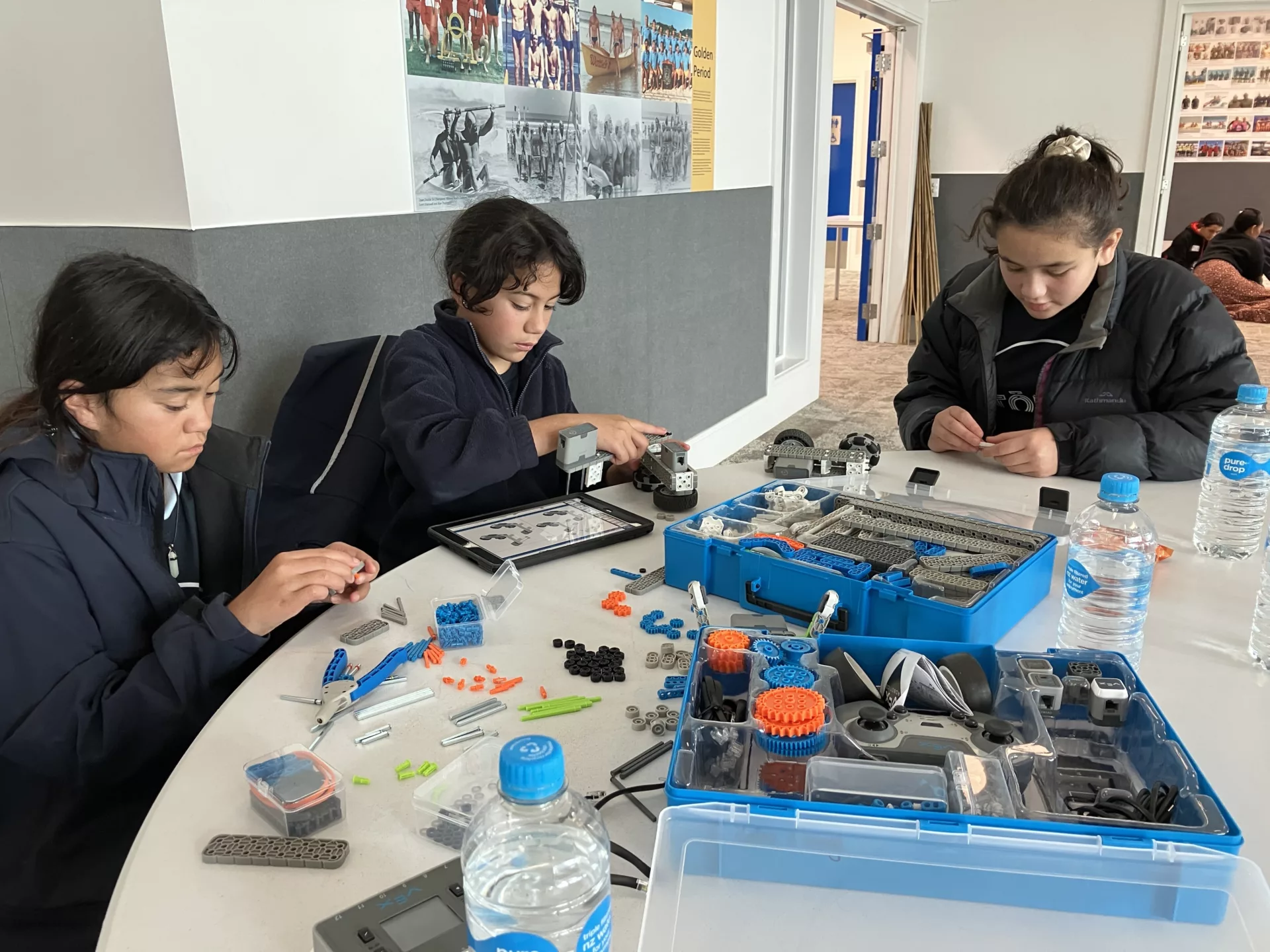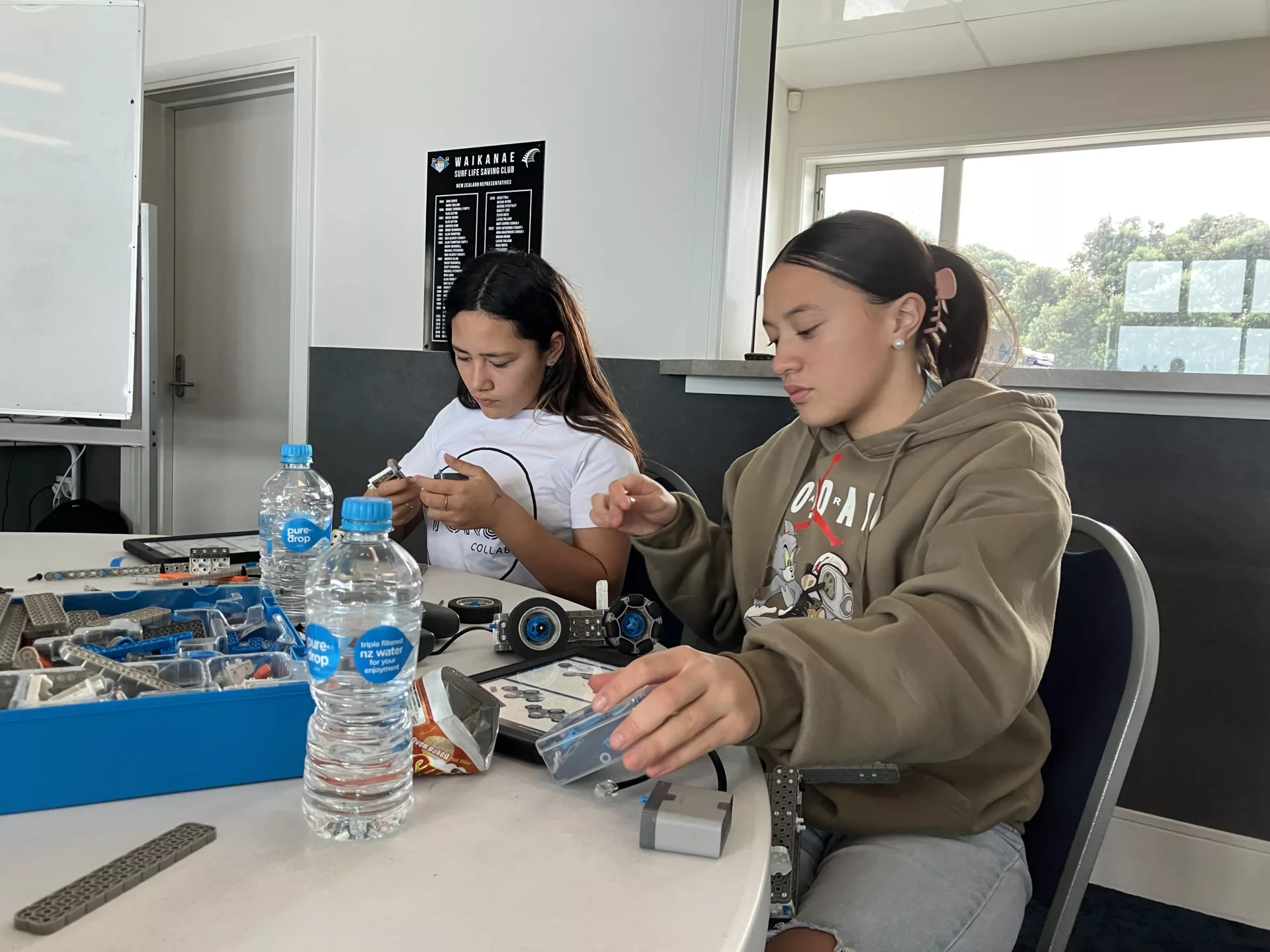Voices for better
We’re wholeheartedly passionate about being a voice for a better world for women, children and animals, as well as other less advantaged New Zealanders. Read on to learn about many of the causes and issues we care deeply about.
Kōhine relish STEMM challenge in programme run by Tōnui Collab




Programmes aim to encourage more women into world of technology
Aiming to get more kōhine (young women) from Tairāwhiti interested in a career in technology is the goal of a robotics programme run by Tōnui Collab.
Tōnui Collab runs a number of different programmes in Te Tairāwhiti to expose rangatahi to the diversity of STEMM — science, technology, engineering, maths, mātauranga Māori.
In the past year about 2500 rangatahi have taken part in Tōnui Collab-led STEMM learning experiences.
But director Shanon O’Connor has noticed more boys than girls are taking part in the school-based STEMM programmes.
Shanon is also a board member of Te Matarau, the Māori Tech Association.
“Less than 2 percent of the tech workforce is wahine Māori and that is something that must change,” she says.
“While this is better than the global average, it does still highlight a need for focused initiatives to engage kōhine in STEMM.”
Women are underrepresented in tech, according to TechWomen, occupying only 23 percent of tech roles. Fewer than than one in 20 girls consider a high-paid career in STEM compared to one in five boys.
Tōnui Collab’s Kōhine Robotics initiative, supported by Gattung Foundation, is an opportunity to build a community of kōhine who can experiment and problem-solve in a supportive and collaborative environment.
There have been 10 teams of kōhine from seven different kura across Te Tairāwhiti — Kawakawa Mai Tawhiti, Makarika, Hātea a Rangi, Mangatuna, Waikirikiri, Pātūtahi and Gisborne Intermediate.
The whāinga (goals) for this programme are for kōhine to develop confidence with technology, to have the opportunity to compete nationally and globally in a robotics competition, and to be introduced to the opportunities in STEMM during wānanga and field trips.
This is achieved by having regular wānanga so the kōhine can come together to build community and collaborate on robotics challenges.
“We have hosted wānanga in Tūranga at both the library and the Waikanae surf club and up the Coast at Penu Marae,” Shanon said.
“At the wānanga, the kōhine are supported to build robots, code robots, and take on robotic challenges.
“We also had guest speakers who share about their experiences in STEMM. Manuhiri (visitors) have included Renee Raroa from Toha, Melka Oakley from TORO Technologies, Eryn Kwon from Mātai Research and Michelle from Kiwibots,” she said.
They highlighted different pathways into STEM, like tertiary study, micro-credential programmes and apprenticeship models, as well as careers in STEM.
Tōnui plan to take the kōhine on field trips to see different STEM careers in action.
The experiences in wānanga are life-altering, Shanon said.
“Kōhine are telling us about their shifts in future thinking and we are observing their shifts in confidence. If their journey stopped here for this programme, we would be happy and confident that there would be ripple effects into their future.
“We have kaiako, kaiāwhina, and whānau attending with kōhine from their school or kura and they have expressed gratitude for the opportunity being created for our kōhine,” she said.
A part of this has been preparing for a national VEX robotics competition in Palmerston North in December run by Kiwibots.
Kiwibots supply robotics gear to kura around Aotearoa to inspire and empower the next generation of dreamers, innovators and creative thinkers through STEM.
Kiwibots has worked with over 10,000 New Zealand students aged eight years and up through the VEX competitions, and even more with their education programmes. More than 1000 young Kiwis have represented New Zealand at the VEX World Championships.
Kiwibots national operations manager Michelle Hazeleger-Mollard said working with Tōnui is a way to help to ensure the next generation are collaborators and creative thinkers, through the STEM skills attained in robotics.
“Our rangatahi need to learn soft (human) and hard (digital) skills so that they can become our future leaders and game changers. These skills are best taught through robotics education.”
About 40 teams from across Aotearoa New Zealand, including the teams from Tairāwhiti, will be competing.
Sixteen teams from last year’s national competition went on to compete at the world championships in Texas this year.
“We would love to see that for some of our kōhine from Te Tairāwhiti,” Shanon said.
The kaupapa has been supported by the Gattung Foundation, which was founded by Angela and Theresa Gattung, who said it was born out of their sisterhood and a shared spirit to enable others.
They have a particular focus on Māori and Pasifika wahine and kōhine.
“One of our core causes is forging futures through education and learning opportunities, and we are particularly focused on STEMM and enabling girls and women to explore their interests and abilities in digital technology, to learn, collaborate and compete,” Angela said.
Robotics kits were gifted to each of the teams for them to take back to their kura for ongoing experimentation and competition preparation. Shanon said.
“The Gattung Foundation have agreed to partner with us for the next three years so our vision is for some of our kōhine this year to move into a tuakana (older child/mentor) role in ++2024 by welcoming teina (younger child) into their teams as others graduate out of the programme so that it can become sustainable within their kura.”
Tōnui is also seeking any additional partners for this programme — “partners who can help ease the financial challenges and/or can open doors so that our kōhine Māori can have the opportunities to see the STEM industries first hand.”
